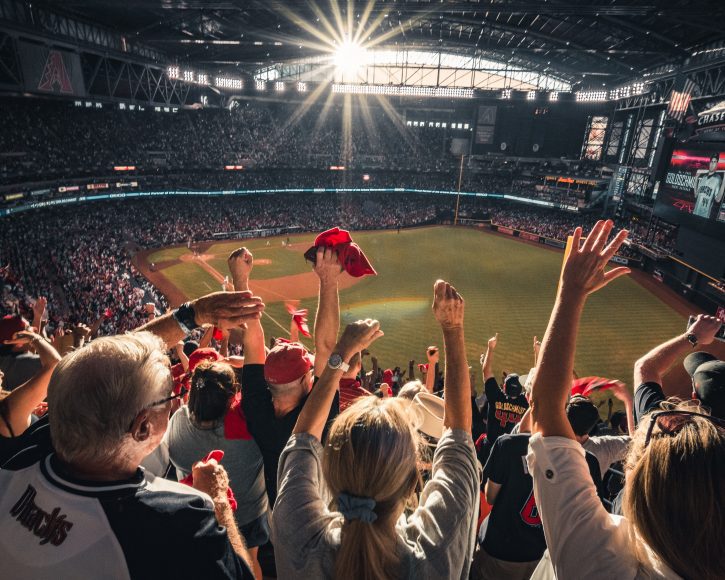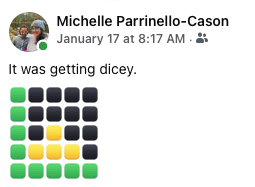Social media has profoundly transformed the way we experience human existence. We’re hard-wired to seek connection, community, and visibility. We want to be seen, heard, and understood. It’s at the heart of some of the most powerful and inspiring stories of human achievement.
The flip side of that drive for an intense sense of community and belonging is a tendency to separate the world into stark categories of ingroups and outgroups. To be part of an “us,” you must (even if you’ve done it subconsciously) define a “them.”
The concept of “Othering” is a social phenomenon that shows up across many academic disciplines studying how people interact with one another. This article for The Guardian explains it like this: “Othering is not about liking or disliking someone. It is based on the conscious or unconscious assumption that a certain identified group poses a threat to the favoured group. It is largely driven by politicians and the media, as opposed to personal contact. Overwhelmingly, people don’t ‘know’ those that they are Othering.”

Wait a minute. You might be thinking. Didn’t I open this article because it was going to be about Wordle — that word game that has little colored squares popping up all over my Facebook feed? What’s this sociology lesson doing here?
I’m getting there. I promise.
See, so much of what we do is now on display — in ways that it historically has not been. What we eat (all those dinner pictures), what music we listen to (thanks Spotify wrapped), and where we go (did you remember to “Check In”?)
Each time we share something, we create the opportunity for connection through shared experience. Unfortunately, the very same act creates a potential for alienation. Concepts like FOMO (the fear of missing out) have been coined to describe the feeling that social media causes on a broad, societal level. If we’re not an “us,” we’re a “them.” And the recognition that we can’t possibly be every kind of “us” leaves us — if left unchecked — prone to clinging even more tightly to the groups we have found, more prone to seeing the “them” around us.
Live sporting events still provide a mostly healthy outlet for a playful banter of us and them dynamics that helps us lay the silliness of it all bare. Strangers in a bar can unite around rooting for the same team, and fans of opposing sides can trash talk one another on game day and go right back to being colleagues, friends, and even loving spouses. The artifice of these particular group memberships is apparent. We know we’re performing a kind of fun pantomime of belonging, and so we’re able to safely put on our team colors and then step back out of the role when the moment has passed.

But opportunities for broad shared experiences are getting far and few between. We’re all watching different TV shows (thanks to 11 billion streaming services who each want $9.99 a month to subscribe), getting different news, and hearing different jokes. We’re not able to have a moment of shared camaraderie around the proverbial village campfire because we each have our own disconnected blazes. It was a phenomenon Robert Putnam pointed to nearly three decades ago when he noted that we were now “bowling alone,” making fewer and fewer civic organizations and group pastimes a site for people who did not necessarily think alike to get together.
On the one hand, social media offered a chance to reconnect, but now we can find bubbles that we never have to leave.
As it gets easier and easier to find the people who are into your particular niche, it can get more and more difficult to reach across the divide and find common ground outside of that arena. You don’t even get my TV references! How are we supposed to connect?
I am thinking about all of this because of a word game that has taken over the internet. Perhaps by the time you read this, the phenomenon will have already faded (such is the nature of serendipity). But, right now, my Facebook feed is full of gray, yellow, and green squares as people share their daily Wordle scores.

Inevitably, there has been a kind of backlash — posts about how people are confused and refuse to participate, they won’t be dragged in. But then the comments fill up with others giving helpful hints for how to play the simple (but not necessarily easy) game and encouragement to give it a try. After all, it’s just once a day.
Soon, someone new is posting their squares, and the phenomenon grows. It’s the very definition of “viral” – we infect one another through interaction.
But unlike the viral pandemic that has pushed us all physically away from one another for more than two years now, this little word game is a unifying force. We all get the same word on the same day. We all get to know that, for a moment, we were doing the same thing at roughly the same time, and it feels good.
I think Wordle took off in popularity at this particular moment because we need it. We need to feel like there is a common thread that binds despite the differences (from the mundane to the profound, from the everyday tasks to the deeply philosophical beliefs).
We’re in this together, and it’s nice to be reminded through something joyful now and then.










